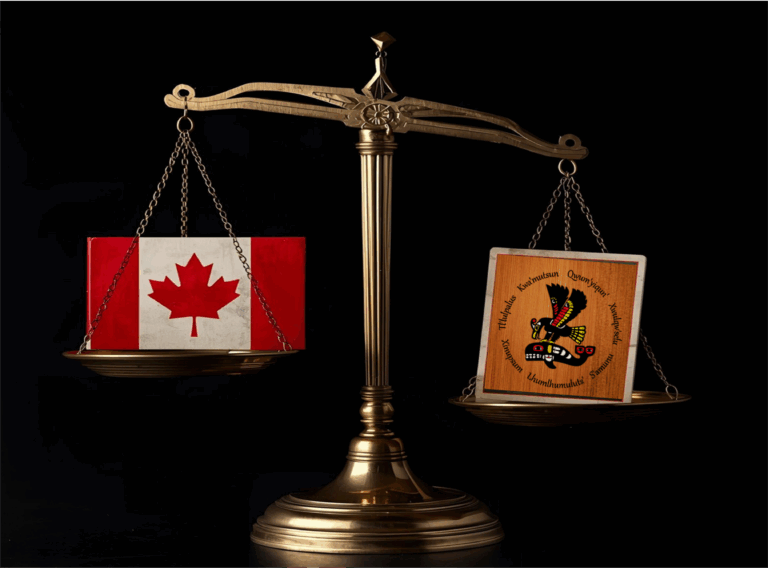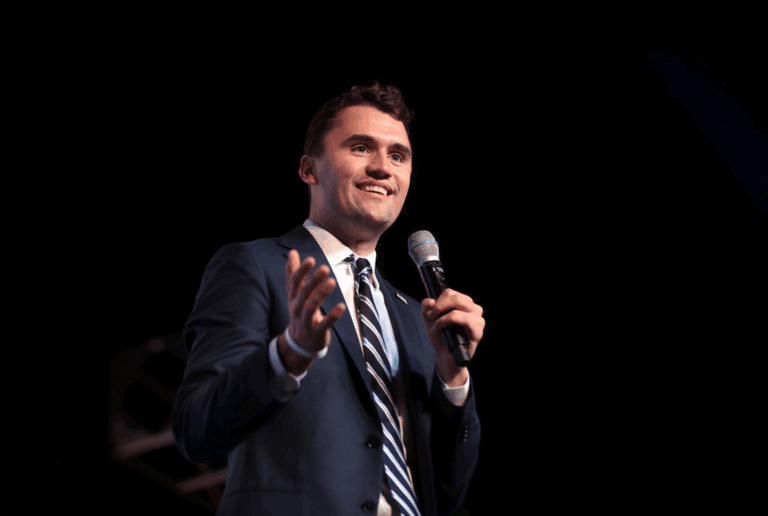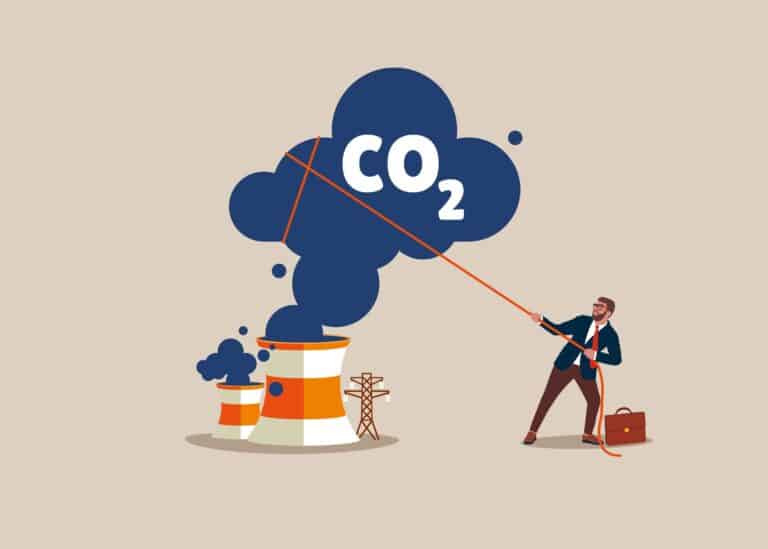
YUVAL LEVIN
Basic Books, 2014
275 pp., $31.00
The political aspirations and philosophical disputes of the 18th Century Enlightenment are still very much contested today. To fully grasp contemporary political debates requires examination and understanding of the ideas and values that arose from the turmoil of the French Revolution. This is precisely what Yuval Levin has done in his study of the debate between Thomas Paine and Edmund Burke in this admirably learned and engaging book.
Yuval Levin is a self-confessed “policy wonk” who worked in the George W. Bush White House. He is the founder and editor of the journal National Affairs, as well as a Fellow at the Ethics and Public Policy Center in Washington, D.C. Although a man of the political right, the book was motivated, he tells us, by a non-partisan attempt to understand the fundamentals of the divide between the left and the right. How is it, he wonders, that while no one individual can possibly be conversant with all the details of endless policy debates – from the tax code to the environment to energy to foreign policy and so on – there are, nevertheless, predictable patterns of political affiliation on such matters. On a host of seemingly unrelated issues, individuals consistently favour positions of either left or right. Why should this be?
Levin’s thesis is straightforward: the modern origins of left and right in are to be found in the opposing political visions of Paine and Burke, whose competing ideas concerning human nature, justice, reason, obligation and good government present us with radically different visions of free and democratic societies. To understand why the Democratic Party in America (or the NDP and Liberal parties in Canada) aligns with the philosophy of Paine, while Republicans (or Conservatives in Canada) are reliably Burkean, we need to know what, exactly, these two thinkers were advancing, and the broader vision of human nature which underlies their philosophies.
Paine and Burke’s philosophical differences are rooted in two very different accounts of human nature. Paine, in common with Locke, Hobbes, and Rousseau, subscribes to the contract theory of the origins of society. Briefly, contract theories begin with the notion of the “natural man,” that is, a solitary individual who exists in a pre-social “state of nature”. These individuals then form “social contracts” by mutual consent. Societies are thus construed as arising from a collective act of voluntary association. It requires that individuals surrender some part of their autonomy, but their interests are, nevertheless, better served under the terms of the social contract.
As with all contract theorists, Paine attaches a crucial importance to the individual. Perhaps the most enduring of all Paine’s political legacies – and increasingly, one of the fixed moral and political assumptions of our own age – is that society is nothing more than a collection of individuals, and that the state exists only to protect their rights. The political institutions of liberal societies are, by and large, deemed just or unjust insofar as they promote or subvert the individual’s good. In short, it is the individual’s interests which endow liberalism with its raison d’etre.
Contrary to Paine (and to all contract theorists), Burke denies that there can ever be any such thing as a solitary, “natural” man, one who exists “prior to society.” As Levin remarks, to imagine such a creature “is to ignore man himself in pursuit of an abstraction with little to teach us.” For Burke, it is absurd to speak of man having a pre-social nature. Man is a social animal, and to deracinate him in the name of an abstract theory is contrary to the experience of humankind.
Burke believed that Paine’s “natural man” – the pre-social, solitary individual, living on his own, divorced from community – radically misconstrues human nature. For Burke, any political philosophy or system based on such assumptions is utterly wrong-headed.
In contrast to Paine’s natural man, Burke’s view of human nature is profoundly historical. He sees society as a priceless inheritance. Each generation is charged with preserving for posterity that which is best in a country’s institutions, traditions, customs and mores. It is an inheritance that should be meddled with as little as possible, and only after giving due deference to a nation’s history. As Levin notes, “[Burke’s] model of nature is not Paine’s system of rational rules akin to physics, but something more like the example of biological organisms transmitting their traits through generations: a system of inheritance.”
A crucial disagreement between the two thinkers lies in their respective views of reason. For Paine, the solitary individual of contract theory embodies the Enlightenment belief that human action arises from an unfettered, timeless and abstract use of reason. Personal choices are correspondingly understood as calculative and self-interested. Paine’s insistence on the power of reason is axiomatic: humans ought to be able to decide on any and all practical matters and solve all problems by the unimpeded exercise of their rational faculties.
Burke rejected this truncated and partial view of reason. Unlike the majority of Enlightenment thinkers, who believed that man was basically a rational animal, who would act reasonably once the barriers of superstition, custom and dogma were removed, Burke was only too conscious of the limits of individual reason. As he famously proclaimed: “Politics ought to be adjusted not to human reasoning but to human nature, of which the reason is but a part, and by no means the greatest part.”
For Levin, a key demarcation between the two thinkers lies in their regard for human “sentiments”:
A politics oriented to man’s nature understands man as an animal being, a rational being, and a creature of sympathies and sentiments. Paine and other radical liberal thinkers leave the human sentiments and the role of the imagination out of their understanding of human nature. By overemphasizing both the animal and the rational elements of man, Burke worries, they not only disregard but also undermine the sentiments that are in fact key to human nature and political order.
Burke believed sentiments (encompassing both the emotions and the imagination) formed a foundational and critical component of any political order, and it was foolish for Paine or any political theorist to disregard them.
The essence of their argument is epistemological. For Burke, human reason in any political context is always mediated by our sentiments and imagination. This is what gives order to the data we derive from our senses, and on which our reason ultimately relies. Hence a crucial part of any political order must involve the tending of what he calls “moral imagination” – the conglomeration of sentiments, mores, customs, practices, attachments, and traditions which form a particular community. Ultimately, it is the cultivation and preservation of the moral imagination which Burke construes as essential to the health and good governance of a society.
Here is the most profound of the differences between the two thinkers: Paine’s emphasis on abstract, universal axioms and principles, accessible by the exercise of pure reason, versus the Burkean stress on the local, the historically contingent, and the particular. Whereas the liberalism of Paine posits that justice is best served by abstracting from the local and historical, Burke takes as axiomatic that political concepts – far from being abstract and universal – are instead rooted in the specifics of a given culture, with its own particular history, practices and traditions. For Burke, it is these distinct, concrete, historically contingent particularities which should fundamentally shape public policy, rather than any appeal to abstract calculations and universal principles.
Like most of his late-Enlightenment contemporaries, Paine was heavily influenced by the epistemology of the new natural sciences, whose mandate was to understand nature by employing the new methodological devices derived from reason. This newfound scientific rationality, which had produced such dramatic advances in understanding the natural world, promised to bring about similar revolutions in our understandings of the social world. Kant captured the zeitgeist when he proclaimed Rousseau “the Newton of the moral world.” Formulating universal laws and inviolable axioms for the political world seemed the logical next step in social evolution. Many of the radical reformers of the Enlightenment thus treated politics as a kind of philosophical geometry. Paine’s most famous book, The Rights of Man, asserts in its title a categorical, axiomatic truth which brooks no dissent.
Burke, pondering the bloodbath of the French Revolution, maintained that this stress on scientific rationality ultimately had a corrosive effect on politics. As Levin writes: “A caustic and simplistic skepticism of all traditional institutions, supposedly grounded in a scientific rationality that took nothing for granted, but in fact wilfully ignored the true complexity of social life, seemed to Burke poorly suited for the study of society, and even dangerous when applied to it.
“The corrosion of public feelings, mutual attachments, and basic human dignity that resulted from reducing politics to abstract rights and principles…tended to encourage a radical disposition to politics. Politics was first and foremost about particular people living together, rather than about general rules put into effect. This emphasis caused Burke to oppose the sort of liberalism expounded by many of the radical reformers of the day.”
Levin’s immediate political concerns are naturally those of the modern United States, but the contrasting visions of Paine and Burke – the progressive and the conservative – are equally applicable throughout the Anglosphere, including Canada. On almost every policy issue – health-care, education, the growth of government, pension reform and so forth – Canadians are offered so-called “progressive” solutions which appeal, in Paine-like fashion, to abstract and universal principles, such as “equality” or “social justice”.
The concrete meanings of these terms are rarely iterated, so it is often unclear what “equality” might mean in a specific context such as, for example, an individual’s access to higher education. Nevertheless, these abstractions are commonly used as catchphrases and slogans to authorize state interventions.
Burke was skeptical of grand abstractions. He believed politicians need to proceed cautiously, fully alert to and mindful of the customs, mores, traditions and history of a particular people and its history. It is therefore frequently asserted that Burke, and conservativism in general, opposes change. But Burke, and most conservatives, understand that change and reform are inevitable. The challenge, he believed, was to balance reform with maintaining and enhancing the providential inheritance of the current age for the next generation.
There are many other differences between Paine and Burke, notably the role of religion in forming the polity, their differing accounts of justice, and contrary ideas about individual obligation. It seems that wherever we cast our eye on the contemporary political landscape, their ghosts are lurking. Near the end of his book, Levin poses a question which strikes to the heart of “the great debate”: “What authority should the character of a given world exercise over our sense of what we would like it to be?” Yuval Levin has done a masterful job of showing why our answer to that question matters a great deal to present-day political debates.





